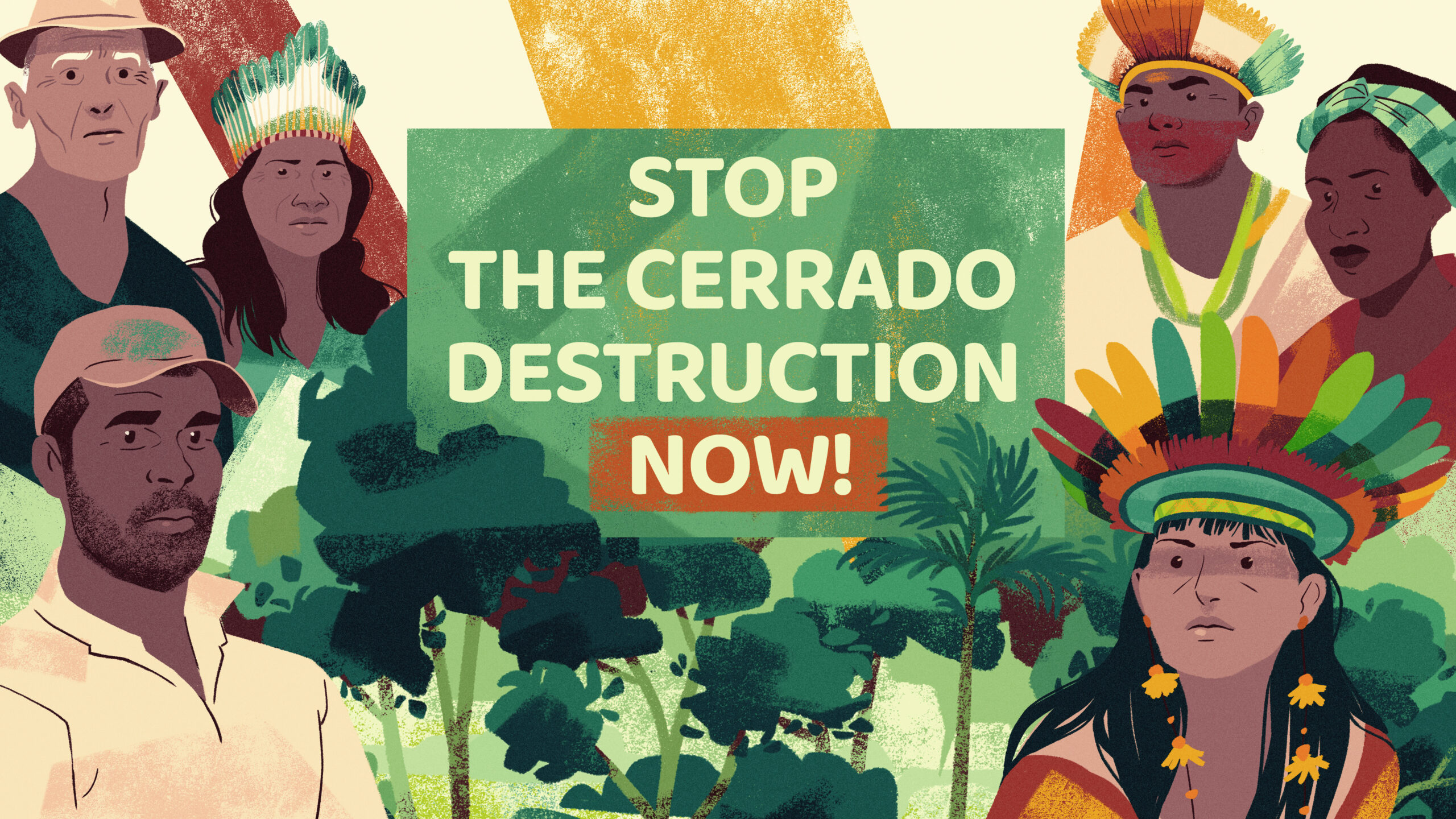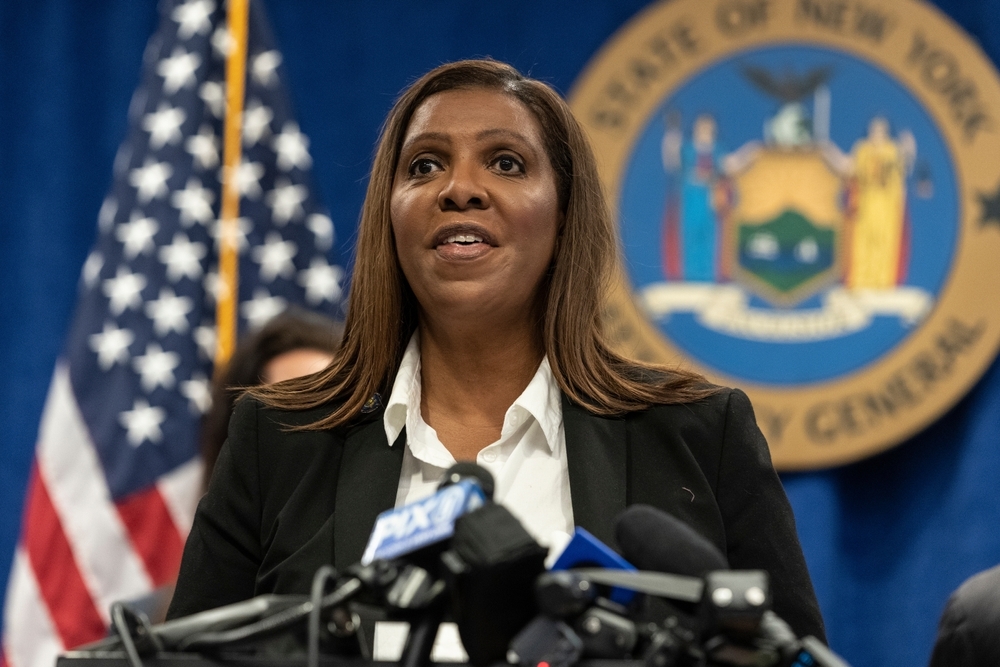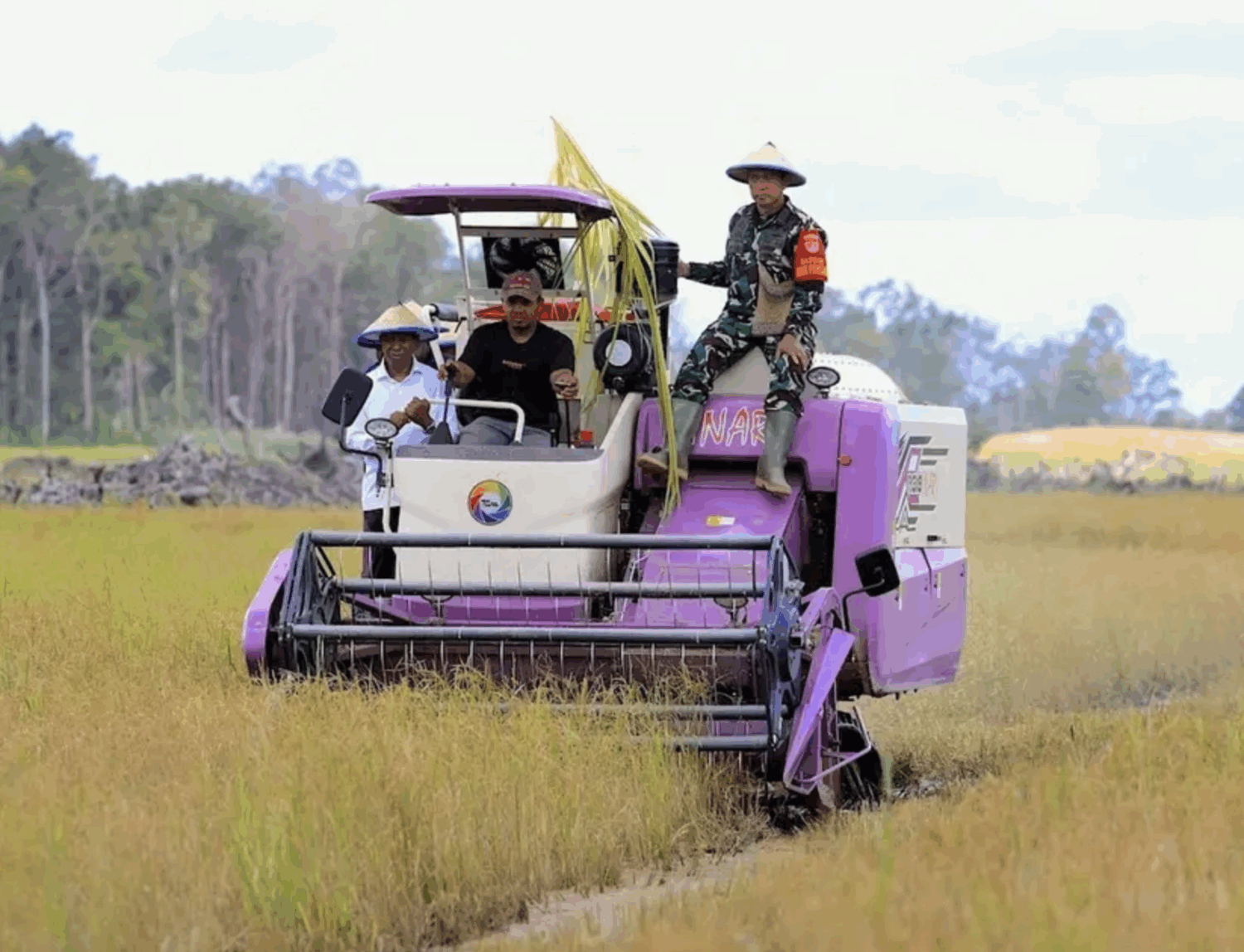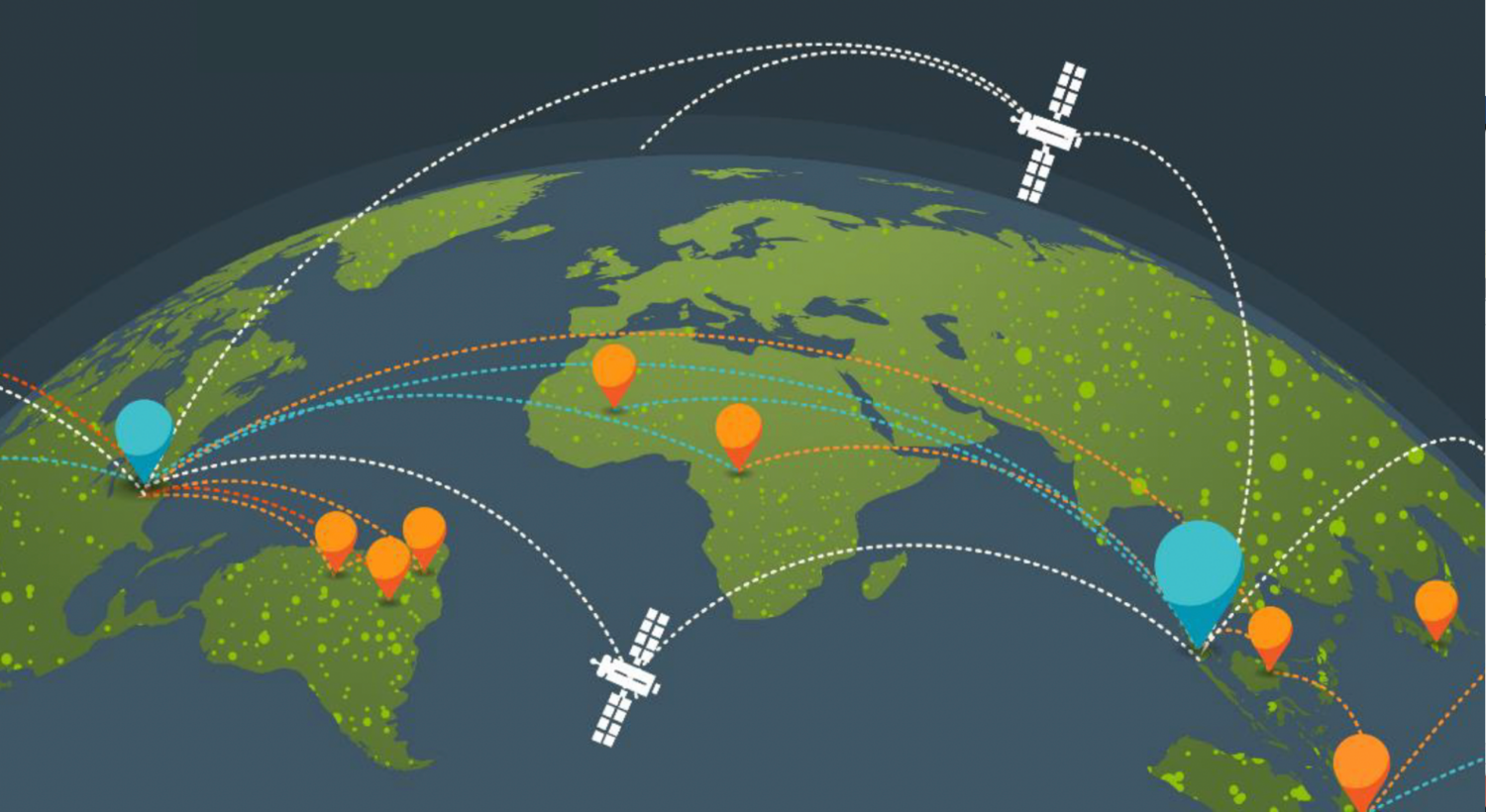
Major European supermarkets launch investigations over US animal feed giant Bunge’s links to Cerrado deforestation
Major European supermarkets launch investigations over US animal feed giant Bunge’s links to Cerrado deforestation
New Mighty Earth report links Bunge to deforestation for soy equivalent to 15,897 soccer pitches prompting supermarkets to act.
Major supermarkets in Europe, including Carrefour and Casino in France, Ahold Delhaize and Jumbo in the Netherlands and Aldi South from Germany, have launched investigations in response to a new Mighty Earth report linking Bunge to 11,351 hectares of recent soy-related deforestation in the threatened Cerrado savannah in Brazil. Others, such as France’s biggest pork producer, Cooperl, have dropped Bunge from their soy supply chains.
The report, in partnership with Repórter Brasil, Instituto Centro de Vida (ICV) and Deutsche Umwelthilfe (DUH), comes as figures reveal record rates of deforestation in the Cerrado. The EU Deforestation Regulation (EUDR), which will enter into force on 29 June, currently fails to offer legal protection for three quarters of the Cerrado, placing further pressure on this critical biome. A vast tropical savannah of over 200 million hectares in central Brazil, and a huge carbon sink storing an estimated 13.7 billion tons of carbon in its soil and through its deep roots system, the Cerrado has become a global hotspot for deforestation linked to the meat industry.
Why Bunge?
With annual revenues of $67 billion, US-based Bunge is the main supplier of soy animal feed to the meat industry in the European Union and is the trader with the greatest deforestation risk linked to soy in the Cerrado, after the two next worst commodities giants, ADM and Cargill. It also has ambitions to be the biggest having recently announced a $34 million merger with Dutch agri-business Viterra. Bunge ships vast amounts of soy to Europe to feed animals in intensive farming systems, destined for the meat aisles of major supermarkets in France, Spain, Germany and the Netherlands – largely for beef, poultry, pork and dairy products.
Key findings:
- Bunge recently bought soy from three farms responsible for the equivalent of 15,897 soccer pitches of deforestation in the Cerrado (11,351 ha), cleared after 2021.
- Five of the 100 companies Mighty Earth and DUH contacted confirmed links to soy from Bunge in their meat supply chains: Carrefour, one of the largest retailers in world; LDC, the largest poultry meat group in Europe; retailers Les Mousquetaires and Super U in France; and Jumbo in the Netherlands.
- Retailers Carrefour and Casino in France, Ahold Delhaize and Jumbo in the Netherlands and Aldi South in Germany confirmed they are investigating the deforestation cases we highlighted in our report and have contacted Bunge.
- France’s biggest pork producer Cooperl say they have stopped sourcing soy from Bunge.
- Many other EU-based retailers, meat producers and restaurant groups we surveyed fail to publicly reveal their links but are very likely to buy soy animal feed or soy-based products from Bunge, too.
- Our partner AidEnvironment also detected another five cases linked to an additional 14,598 hectares of deforestation that took place on soy farms in the Cerrado in early 2023, in high-risk areas where Bunge is the leading soy exporter.
- Bunge confirmed to Mighty Earth that it has recently sourced soy directly from four of the eight farms named in our investigation – although it said the deforestation was legal under Brazilian law and failed to provide any further details.
- Bunge confirmed to Mighty Earth that it does not have a deforestation cut-off date of 2020, and so will accept legally deforested, deforestation-risk, or deforestation-linked soy in its supply chain until 2025.
Alex Wijeratna, Senior Director at Mighty Earth said:
“Major supermarkets like Carrefour, Casino, Aldi South and Ahold Delhaize don’t want to be associated with the destruction of biodiversity hotspots and climate-critical landscapes like the threatened Cerrado savannah in Brazil.”
“Retailers need to ban bad actors like Bunge who show zero urgency, zero shame, and zero commitment to tackling the Cerrado’s out-of-control deforestation crisis.”
The Cerrado – Brazil’s “forgotten jewel”
The Cerrado is the world’s largest and most diverse savannah, home to 5% of the world’s plants and animals, including rare and endangered species like the jaguar, giant anteater and maned wolf. It is also home to numerous local and Indigenous communities.
Known as an ‘upside-down forest,’ the Cerrado stores carbon, equivalent to that of a tropical forest, in its soils and immense roots system. It’s also a major water source, but industrial soy expansion for animal feed means it’s becoming drier and hotter. While the global focus has been on its neighbour the Amazon rainforest, the Cerrado, Brazil’s “forgotten jewel” is now in greater peril, having lost half of its land surface to make way for soy and cattle, making it vulnerable to ecosystem collapse.
Deforestation in the Cerrado hit a record high of 353,200 hectares between January and May 2023, and recent figures from the Brazilian National Institute for Space Research (INPE) show deforestation rates rising steeply there in comparison to the Amazon, where rates are declining.
Glenn Hurowitz, CEO at Mighty Earth said:
“With this report we’re sending an SOS to ‘Save the Cerrado.’ We need the Cerrado savannah as much as we need the Amazon rainforest to protect us against the effects of a rapidly warming world. Sadly, it’s disappearing twice as fast as its neighbour the Amazon, taken by the meat industry to grow soy and rear cattle to produce cheap meat, stacked high on supermarket shelves in Europe.”
“Soy traders such as Bunge must make good on its promise to be deforestation-free in its supply chains by 2025 and cut ties with farms destroying this crucial biome. Bunge was one of eight soy traders at the COP27 climate summit that agreed a plan to limit global warming to 1.5C and to end deforestation no later than 2025. Given what our investigation has found, and the limp response Bunge has given to us, it’s time for all the major retailers to drop Bunge.”


